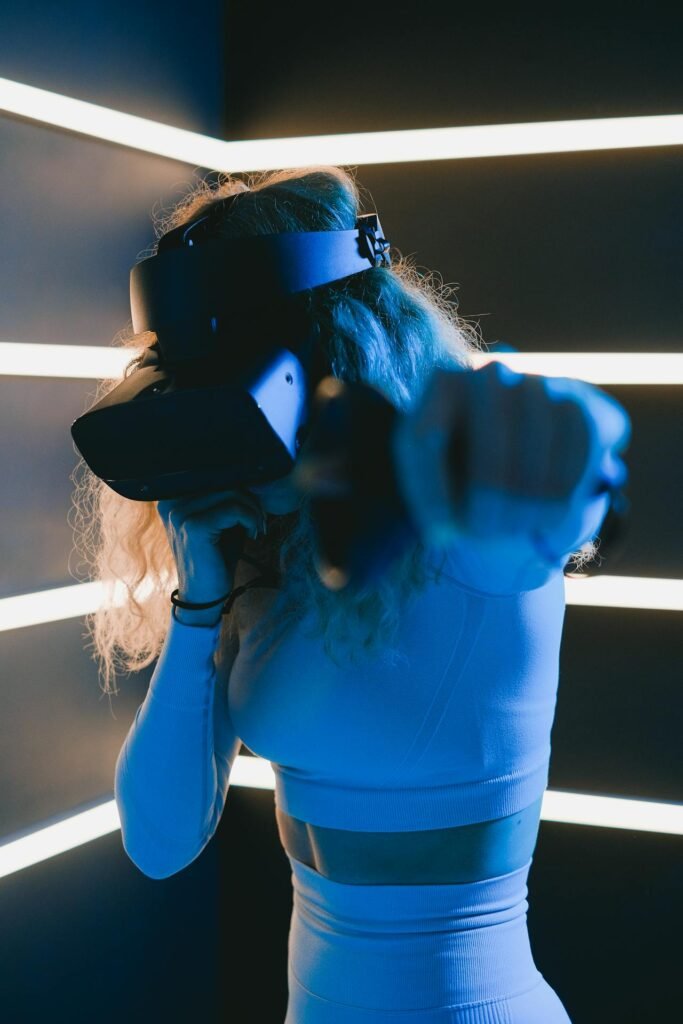Atlanta, a city known for its rich history and vibrant culture, is rapidly becoming a hub for technological innovation. Among the most exciting advancements is the rise of Virtual Reality Atlanta (VR). From immersive gaming experiences to groundbreaking educational tools, VR is transforming how Atlantans engage with the digital world. In this article, we’ll explore the various applications of VR in Atlanta, highlighting key locations, benefits, and the future prospects of this revolutionary technology.
The Rise of Virtual Reality
What is Virtual Reality?
Virtual Reality (VR) is a technology that creates a simulated environment, allowing users to interact with digital elements as if they were real. By using VR headsets and motion sensors, users can experience a completely immersive world, blurring the lines between the virtual and the physical.
Growth of VR in Atlanta
Atlanta has embraced VR technology with open arms, seeing significant growth in its adoption across various sectors. This surge is driven by a combination of tech-savvy consumers, innovative startups, and a supportive ecosystem that fosters technological advancements.
Applications of Virtual Reality Atlanta
Entertainment and Gaming
VR Gaming Centers
Atlanta boasts several VR gaming centers where enthusiasts can dive into immersive gaming experiences. These centers offer a range of games, from action-packed adventures to serene explorations, providing fun for all ages.
- Example: iSimu VR: Located in Duluth, iSimu VR offers a vast library of VR games and experiences, making it a popular destination for gamers.
Escape Rooms and Arcades
VR escape rooms and arcades are becoming increasingly popular in Atlanta, offering unique and challenging experiences that blend physical puzzles with virtual worlds.
- Example: The VOID: This VR experience at The Battery Atlanta offers multi-sensory adventures that transport players into another reality.
Education and Training
Educational Institutions
Atlanta’s educational institutions are leveraging VR to enhance learning. From virtual field trips to interactive science lessons, VR is making education more engaging and effective.
- Example: Georgia State University: The university’s Creative Media Industries Institute uses VR to provide students with hands-on learning opportunities in media production and design.
Professional Training
VR is also being used for professional training, offering simulations that help prepare individuals for real-world scenarios without the risks associated with traditional training methods.
- Example: Emory University School of Medicine: VR simulations are used to train medical students in surgical procedures and patient care.
Healthcare and Therapy
Medical Treatments
In healthcare, VR is being used for pain management, physical therapy, and mental health treatments. VR provides a controlled environment where patients can engage in therapeutic activities.
- Example: Children’s Healthcare of Atlanta: This hospital uses VR to help children manage pain and anxiety during treatments.
Therapeutic Applications
VR is proving effective in treating mental health conditions such as PTSD, anxiety, and phobias by creating safe spaces for exposure therapy.
- Example: Atlanta VA Health Care System: VR is used to help veterans with PTSD through immersive therapy sessions.
Benefits of Virtual Reality
Enhanced Engagement
VR’s immersive nature makes it a powerful tool for engagement, whether in gaming, education, or therapy. Users are more likely to retain information and stay motivated when interacting with VR.
Safe Environment for Learning and Training
VR provides a safe environment for users to practice skills and face challenges without real-world consequences. This is particularly valuable in medical and professional training.
Accessibility and Inclusivity
VR can make experiences more accessible to those with physical limitations. For example, individuals who cannot travel can still explore virtual worlds and participate in activities.
Challenges and Considerations
Technical Limitations
Despite its many benefits, VR technology still faces challenges such as high costs, technical glitches, and the need for powerful hardware to run complex simulations.
Health Concerns
Extended use of VR can lead to issues such as motion sickness, eye strain, and disorientation. It’s important for users to take breaks and use the technology responsibly.
Content Development
Creating high-quality VR content requires significant resources and expertise. As the technology evolves, there is a growing need for skilled developers to produce engaging and effective VR experiences.
Future Prospects of Virtual Reality Atlanta
Emerging Trends
The future of VR in Atlanta looks promising, with trends such as augmented reality (AR) integration, social VR experiences, and advancements in VR hardware poised to take the technology to new heights.
Economic Impact
As VR continues to grow, it is expected to have a substantial economic impact on Atlanta. The city could see increased job opportunities, investment in tech startups, and a boost in tourism driven by VR attractions.
Community and Collaboration
Atlanta’s VR community is thriving, with numerous meetups, hackathons, and collaborative projects. This community-driven approach is fostering innovation and ensuring that Atlanta remains at the forefront of VR technology.
Conclusion
Virtual Reality Atlanta is transforming Atlanta, offering new ways to engage with entertainment, education, healthcare, and more. As the technology continues to evolve, the possibilities for VR in Atlanta are limitless. By embracing VR, Atlantans are not only enhancing their experiences but also contributing to a future where technology and reality blend seamlessly.

